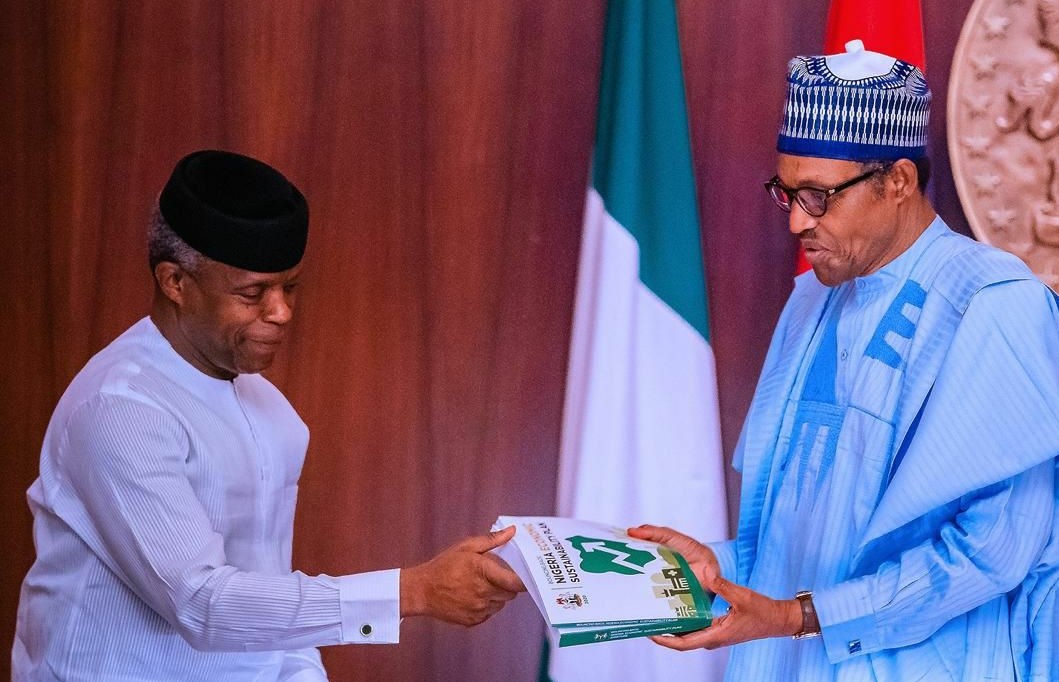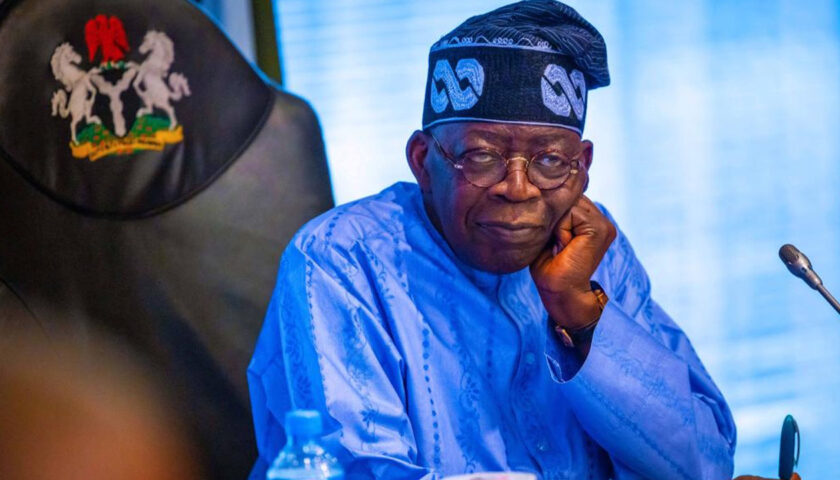*Nigeria’s President Muhammadu Buhari (right) with his Vice, Prof. Osinbajo
The Economic Sustainability Committee (ESC) led by the Vice President of the Federal Republic of Nigeria, Prof. Yemi Osinbajo has warned that more Nigerians are expected to lose their means of livelihood by the end of 2020. The committee also projected that unemployment will rise by 33.6 per cent if the government fails “to take prompt and preemptive measures.”
The report, which was presented to President Mohammadu Buhari on Thursday disclosed further that said while about 39.4 million people may become unemployed by the end of the year, millions more will fall into extreme Poverty before the rampaging Coronavirus (COVID-19) pandemic comes to an end. The federal government in March shut down the economy to curtail the spread of the unseen enemy, which has adverse socio-economic effect on all sectors of the economy.
As a way out, the committee recommended massive job creation in the agricultural, infrastructural and housing development, in line with President’s mantra to “produce what we eat and consume what we produce.”
It said, “A mass agricultural programme, which is expected to bring between 20,000 and 100,000 hectares of new farmland under cultivation in every state of the federation and create millions of direct and indirect job opportunities.” The committee also wants the government to embark on extensive public works and road construction programmes focusing on both major and rural roads and using locally available materials like limestone, cement and granite support for local production and manufacturing of all that is possible, including tech apps, software, shoes, garments, steel fabrication, ceramics and furniture, with the required capital and essential machinery.
They also called for the provision of ample support for the informal sector through low interest loans and by easing procedures for registration, licensing, obtaining permits, etc. By these means, urban and informal businesspeople like mechanics, tailors, artisans, and petty traders, will be encouraged to improve and develop their services. Support for MSMEs, especially in assisting to restructure their loans with banks.





